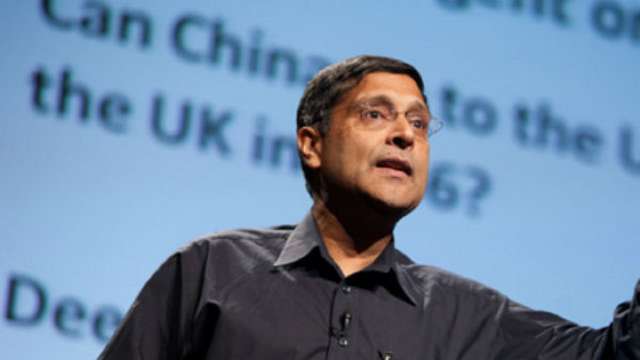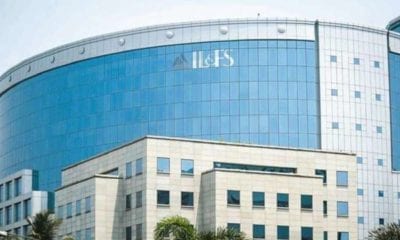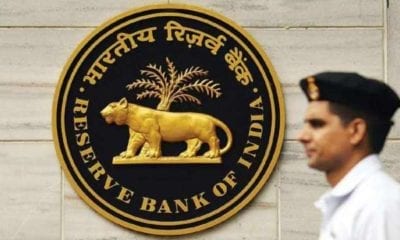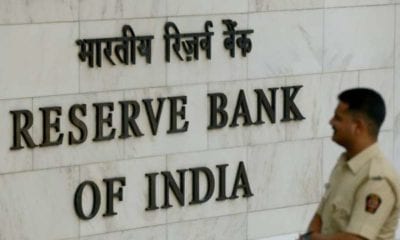Banking
RBI’s regulatory failure created IL&FS mess, says Arvind Subramanian

Terming the IL&FS crisis as a regulatory failure, former chief economic advisor to finance minister Arvind Subramanian has said the Reserve Bank should be held responsible for the crisis at one of the largest entities it has been regulating.
In a soon to be published book, ‘Of Counsel: The Challenges of the Modi-Jaitley Economy,’ Subramanian says though RBI has a good reputation, it does not mean it’s always right, as for years, the RBI was unable to grasp the seriousness of the loan repayment problems or identify the prolonged frauds of Nirav Modi and the likes.
“Now, with the recent shenanigans involving IL&FS being revealed, this failure seems to have encompassed not just commercial banks but also non-bank financial companies.
For these failures, the RBI needs to be held accountable,” he says in the book, published by Penguin Random House India.
The book will be first launched in Mumbai on December 7 and then in Delhi on the 9th.
Subramanian calls upon RBI to step up its abilities in two key areas of supervision and part with its mammoth reserves to recapitalise the ailing state-run lenders in a decisive manner.
“RBI must credibly step up its supervisory abilities, or even be willing to hand this over to a new agency created for this purpose. A second area is recapitalising public- sector banks in a decisive fashion, putting them back on their feet so they can lend again,” he says.
Subramanian had first made this view in the 2018 economic survey wherein he had called using the excess RBI reserves,including the forex reserves and its huge reserve capital of Rs 9.7 trillion for more productive purposes.
“The RBI has excess capital that can be profitably deployed for this purpose I realise that in making this suggestion, I am up against all the eminent current and former RBI officials, who argue that the RBI actually needs all the capital it has.
“These officials command the respect of the public, and for good reasons. But I think they are wrong” he says and quotes the late British prime minister Margaret Thatcher who used to say, ‘One man and the Truth is a majority.’ Though he is critical on the central bank on the IL&FS crisis, he praises the monetary authority for some of its recent steps like the asset quality review and showing the doors to erring private-sector bank heads.
The RBI has done an excellent job of maintaining macroeconomic and financial stability, thanks to its illustrious governors and the strong team behind them, he says and cites the 2015 move of the RBI to initiate an asset quality review, which had an important impact on advancing the twin balance sheet challenge.
“More recently, RBI has been enforcing some discipline on some of the most troubled public-sector banks via the prompt corrective action framework,” he notes and terms the decision on ICICI Bank, Axis Bank and Yes Bank as “impressive actions to account, and ensuring their exit.” “As a result of the RBI’s strong track record, it has become one of the nation’s key public institutions, like the Election Commission, Finance Commission and the Supreme Court, mainstays of the nation that research has repeatedly found to be critical for long-run economic development,” he says.
The former CEA also calls for a radical solution to solve the twin balance sheet problem and offers privatising public sector banks by amending the Bank Nationalisation Act as an effective way to achieve that.
He also flays RBI for not coming out with an effective mechanism to resolve the NPA problem and called for setting up a bad bank as a way forward.
“So far, the strategy has been to solve the twin balance sheet issue through a decentralised approach, under which banks have been put in charge of restructuring. In the current circumstances, however, effectiveness has proved elusive, as banks have been overwhelmed by the scope of the problem confronting them,” he says.
Therefore, he says “the time may have arrived to try a centralised approach, or a public sector asset rehabilitation agency. As so far, public discussion of the bad loan problem has focused on bank capital, as if the main obstacle to resolving the TBS issue was finding the funds needed by public-sector banks.”
Subramanian was the chief economic adviser from October 2014 to June 2018 citing pressing family commitments and has returned to the US. In 2017 his term was extended for a year.









































